The first Triumph motorcycle of 1902 used a Belgian Minerva engine, but within a few years the Coventry firm - originally bicycle manufacturers - was building its own power units. The company was soon involved in racing, and the publicity generated by competition success - Jack Marshall won the 1908 Isle of Man TT’s single-cylinder class for Triumph - greatly stimulated sales. By the outbreak of the Great War the marque's reputation for quality and reliability was well-established, leading to substantial orders for ‘Trusty Triumphs’ for British and Allied forces. The 3½hp model first appeared in 1907. Originally of 453cc, its sidevalve engine was enlarged to 476cc in 1908, and finally to 499cc in 1910 before being superseded by the 4hp model in 1914. Like rival manufacturers, Triumph were keen to exploit their Isle of Man credentials and added the TT Replica - a stripped-down, single-speed, sports roadster - to the range. First registered to a Ralph Shove in February 1914, ‘KT 1329’ was tested by C E ‘Titch’ Allen for The Second Vintage Roadtest Journal (1974), the trusty Model D duly impressing the VMCC’s esteemed founder. ‘With its inherent simplicity, light weight, economy and extraordinary flexibility, it was a first-rate everyday and touring bike for the athletic sportsman of the day. Docile and viceless, it’s ideal for such an event as the annual London to Brighton Run.’ Indeed, ‘KT 1329’ belonged to Comerfords for several years, completing many a Pioneer Run while owned by the Surrey-based motorcycle dealership. Subsequently restored, the machine was purchased by the vendor at Brooks’ sale of the Autokraft Collection at the RAF Museum, Hendon on 6th March 1998 (Lot 27) and since then has formed part of one of Europe’s most important private museum collections. It is offered with Pioneer Certificate (No. 445) and old-style Swansea V5 registration document.
The first Triumph motorcycle of 1902 used a Belgian Minerva engine, but within a few years the Coventry firm - originally bicycle manufacturers - was building its own power units. The company was soon involved in racing, and the publicity generated by competition success - Jack Marshall won the 1908 Isle of Man TT’s single-cylinder class for Triumph - greatly stimulated sales. By the outbreak of the Great War the marque's reputation for quality and reliability was well-established, leading to substantial orders for ‘Trusty Triumphs’ for British and Allied forces. The 3½hp model first appeared in 1907. Originally of 453cc, its sidevalve engine was enlarged to 476cc in 1908, and finally to 499cc in 1910 before being superseded by the 4hp model in 1914. Like rival manufacturers, Triumph were keen to exploit their Isle of Man credentials and added the TT Replica - a stripped-down, single-speed, sports roadster - to the range. First registered to a Ralph Shove in February 1914, ‘KT 1329’ was tested by C E ‘Titch’ Allen for The Second Vintage Roadtest Journal (1974), the trusty Model D duly impressing the VMCC’s esteemed founder. ‘With its inherent simplicity, light weight, economy and extraordinary flexibility, it was a first-rate everyday and touring bike for the athletic sportsman of the day. Docile and viceless, it’s ideal for such an event as the annual London to Brighton Run.’ Indeed, ‘KT 1329’ belonged to Comerfords for several years, completing many a Pioneer Run while owned by the Surrey-based motorcycle dealership. Subsequently restored, the machine was purchased by the vendor at Brooks’ sale of the Autokraft Collection at the RAF Museum, Hendon on 6th March 1998 (Lot 27) and since then has formed part of one of Europe’s most important private museum collections. It is offered with Pioneer Certificate (No. 445) and old-style Swansea V5 registration document.
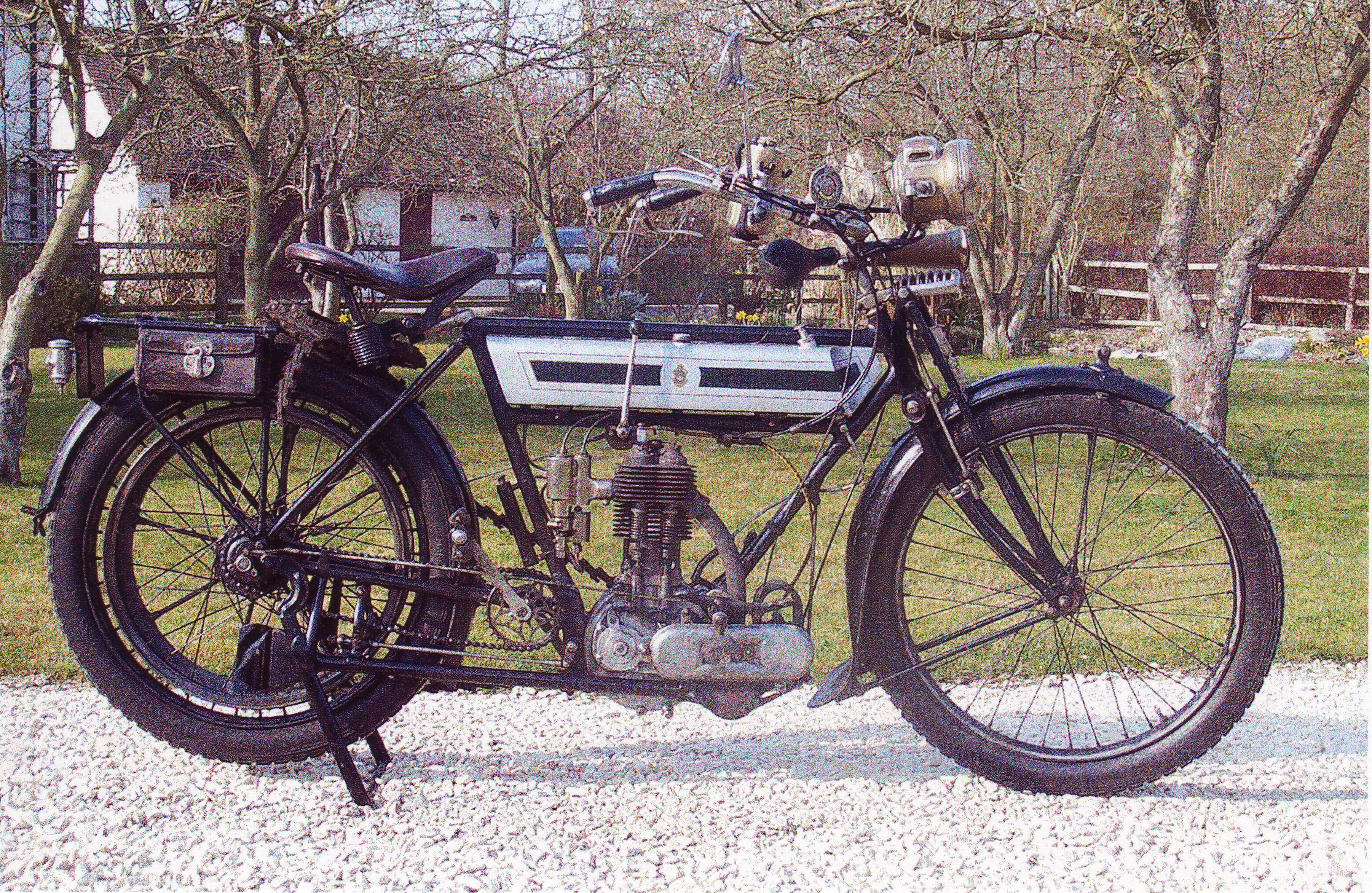

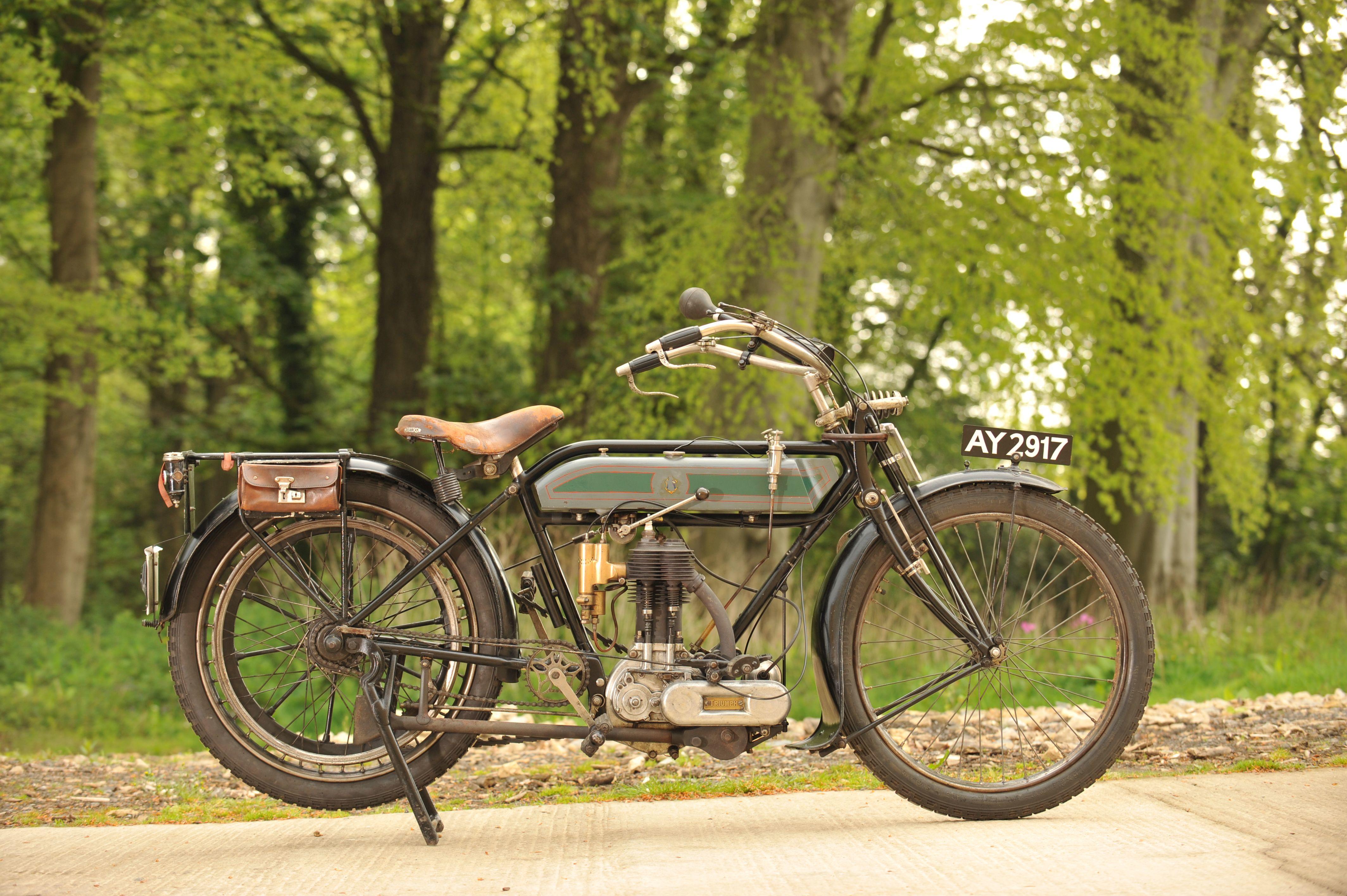
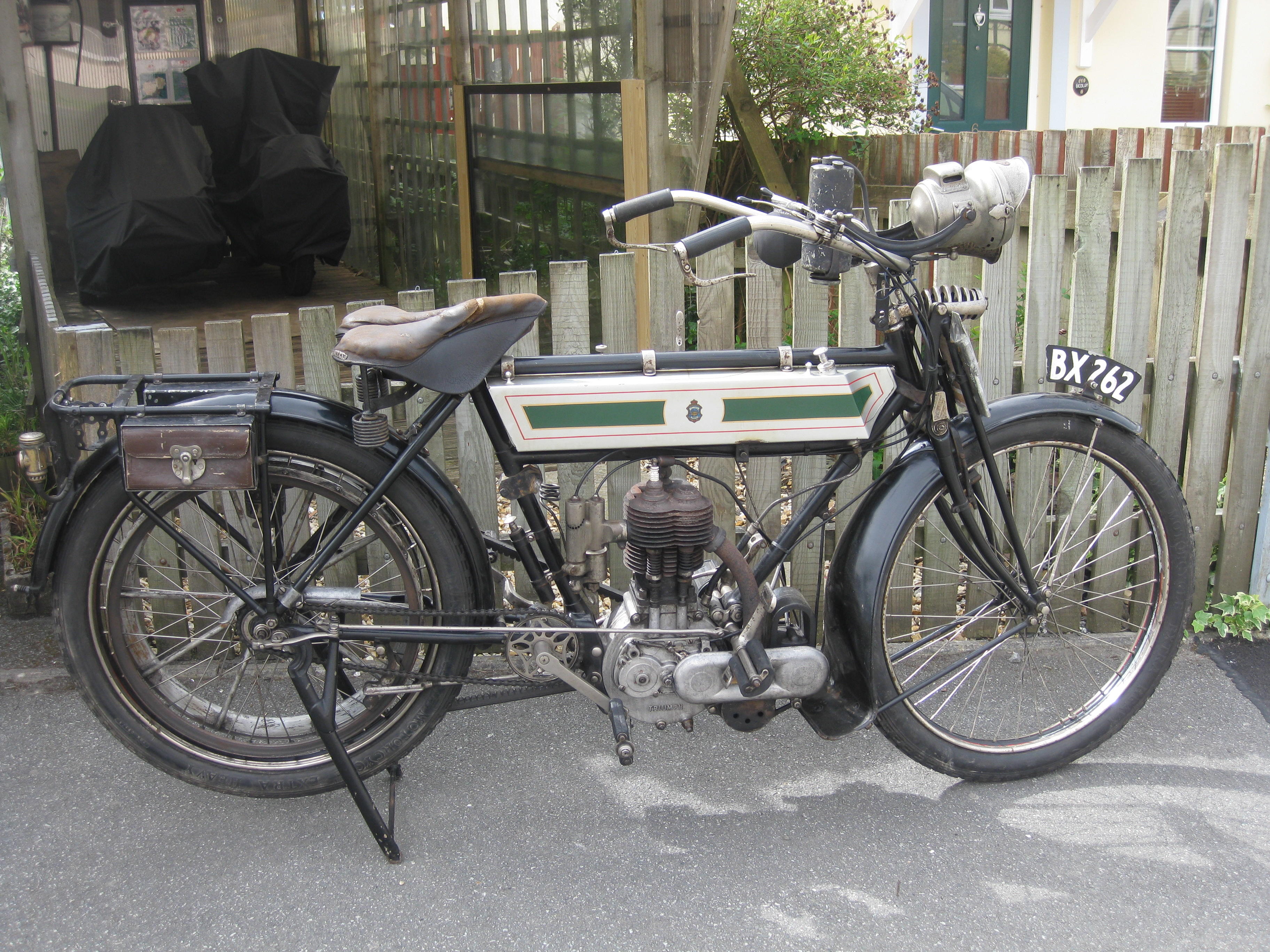
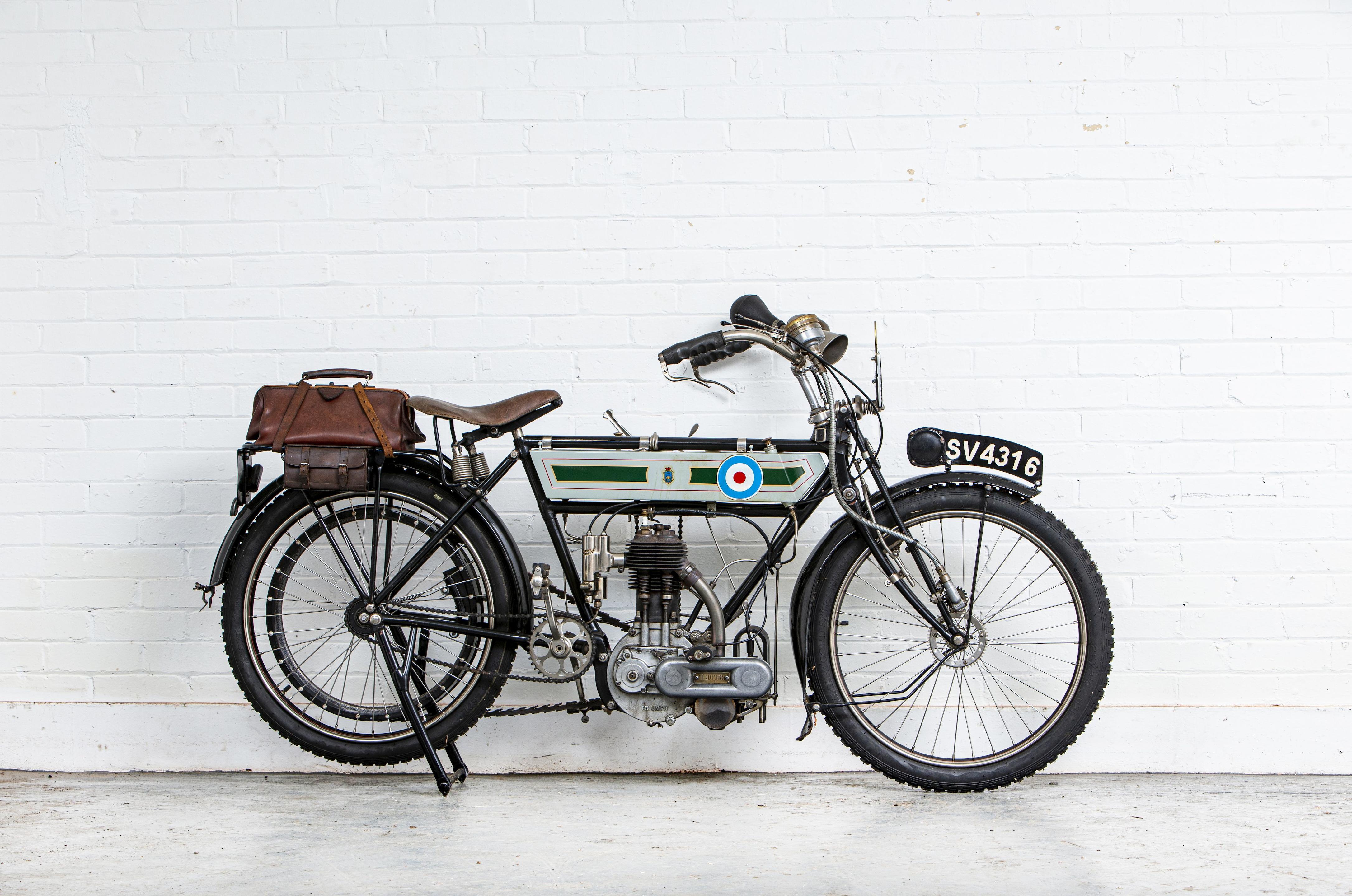



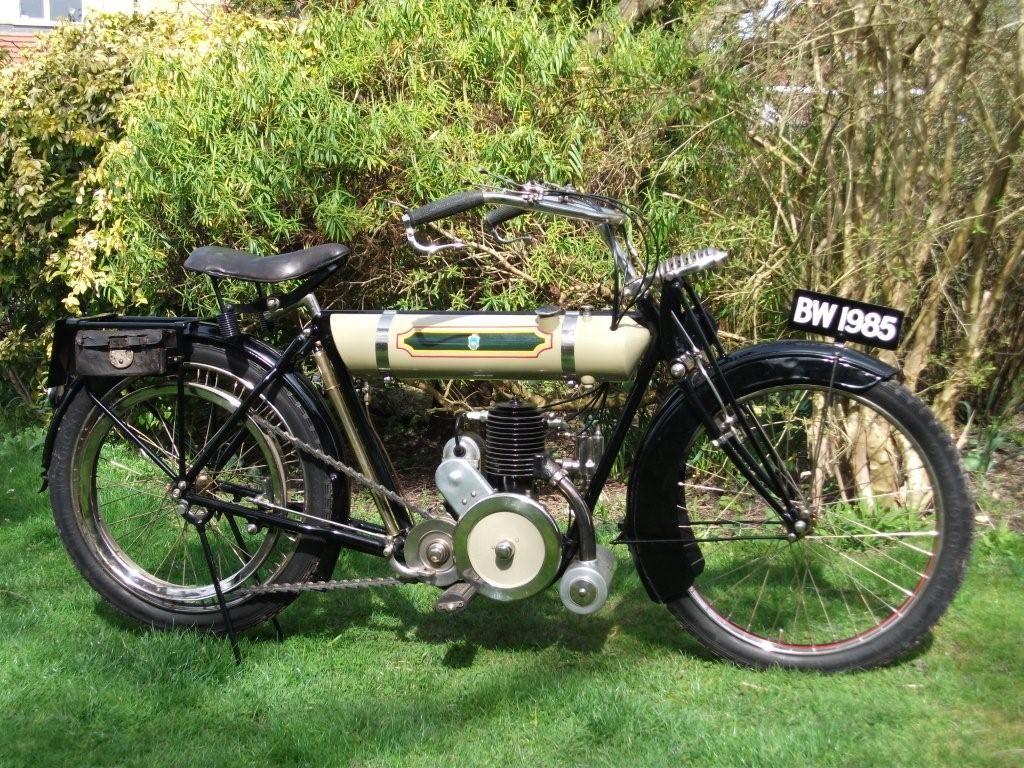
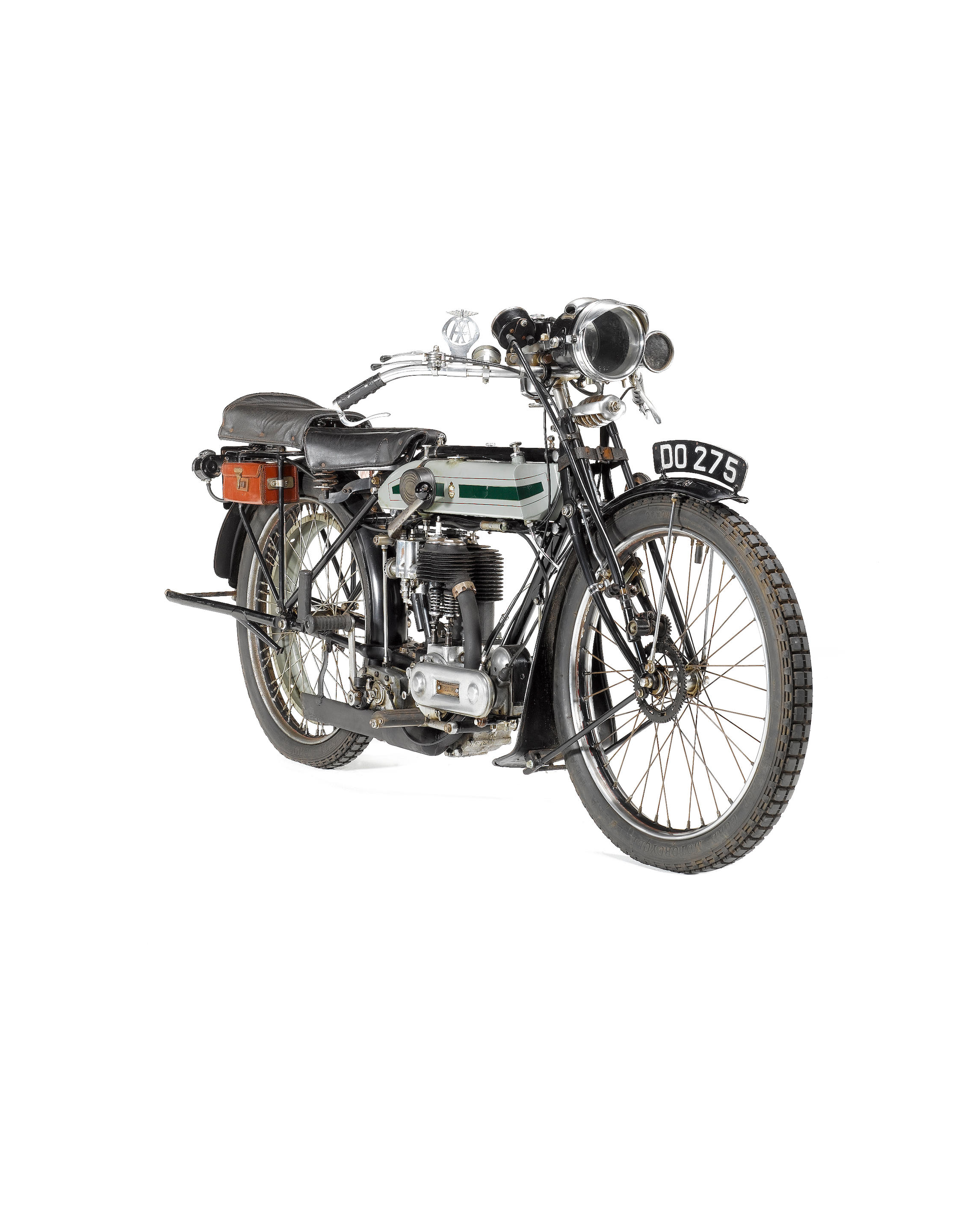
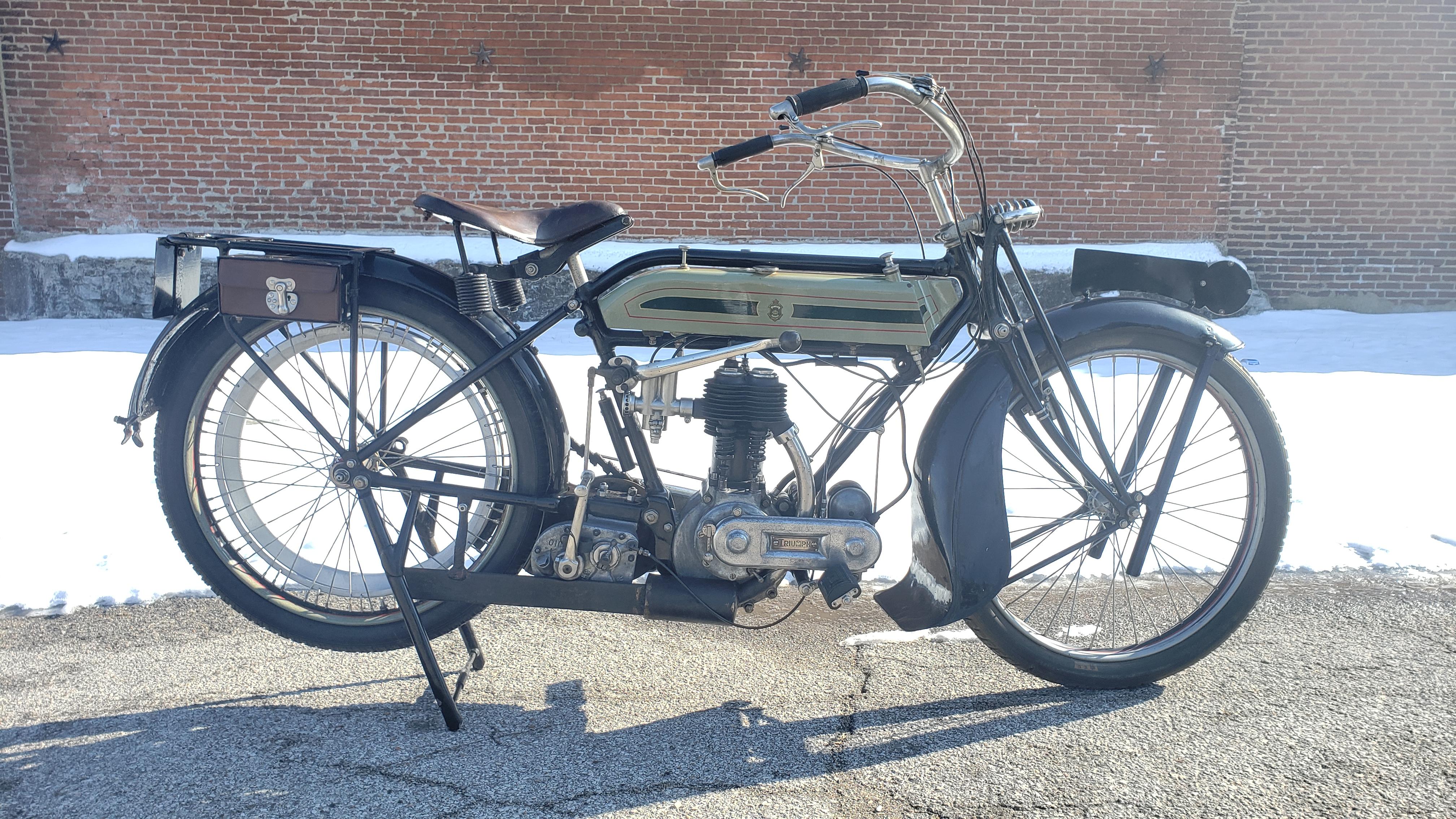




Testen Sie LotSearch und seine Premium-Features 7 Tage - ohne Kosten!
Lassen Sie sich automatisch über neue Objekte in kommenden Auktionen benachrichtigen.
Suchauftrag anlegen